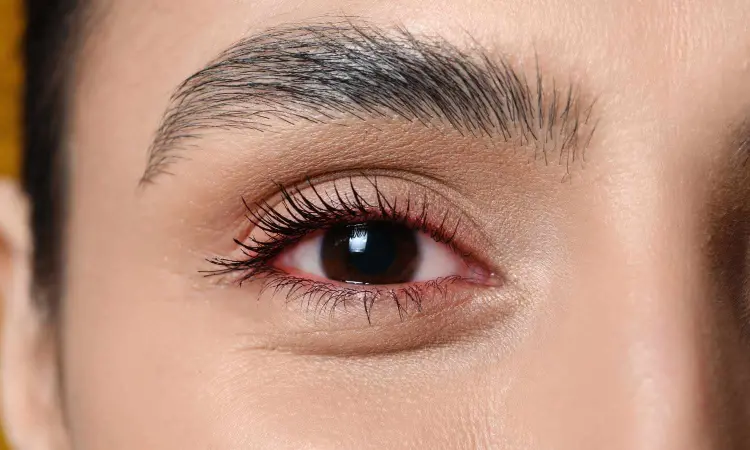- Home
- Medical news & Guidelines
- Anesthesiology
- Cardiology and CTVS
- Critical Care
- Dentistry
- Dermatology
- Diabetes and Endocrinology
- ENT
- Gastroenterology
- Medicine
- Nephrology
- Neurology
- Obstretics-Gynaecology
- Oncology
- Ophthalmology
- Orthopaedics
- Pediatrics-Neonatology
- Psychiatry
- Pulmonology
- Radiology
- Surgery
- Urology
- Laboratory Medicine
- Diet
- Nursing
- Paramedical
- Physiotherapy
- Health news
- Fact Check
- Bone Health Fact Check
- Brain Health Fact Check
- Cancer Related Fact Check
- Child Care Fact Check
- Dental and oral health fact check
- Diabetes and metabolic health fact check
- Diet and Nutrition Fact Check
- Eye and ENT Care Fact Check
- Fitness fact check
- Gut health fact check
- Heart health fact check
- Kidney health fact check
- Medical education fact check
- Men's health fact check
- Respiratory fact check
- Skin and hair care fact check
- Vaccine and Immunization fact check
- Women's health fact check
- AYUSH
- State News
- Andaman and Nicobar Islands
- Andhra Pradesh
- Arunachal Pradesh
- Assam
- Bihar
- Chandigarh
- Chattisgarh
- Dadra and Nagar Haveli
- Daman and Diu
- Delhi
- Goa
- Gujarat
- Haryana
- Himachal Pradesh
- Jammu & Kashmir
- Jharkhand
- Karnataka
- Kerala
- Ladakh
- Lakshadweep
- Madhya Pradesh
- Maharashtra
- Manipur
- Meghalaya
- Mizoram
- Nagaland
- Odisha
- Puducherry
- Punjab
- Rajasthan
- Sikkim
- Tamil Nadu
- Telangana
- Tripura
- Uttar Pradesh
- Uttrakhand
- West Bengal
- Medical Education
- Industry
Adalimumab Improves Corticosteroid Outcomes in Non-Infectious Uveitis: Study

Researchers have found in a new study that adalimumab is more effective than conventional immunosuppressive therapy in achieving corticosteroid sparing and discontinuation among patients with non-infectious intermediate, posterior, or panuveitides. The therapeutic approach to uveitis frequently utilizes oral corticosteroids and immunosuppressive agents; treatment aims consist of suppression of ocular inflammation and a reduction or discontinuation of corticosteroids. This investigation, therefore, directly compared adalimumab, an anti-tumor necrosis factor monoclonal antibody, with conventional agents like antimetabolites and calcineurin inhibitors in real-world clinical settings.
The study was published in the journal of Ophthalmology by Douglas A. and colleagues. This was a randomized, unmasked comparative effectiveness trial conducted in multiple uveitis clinics in academic medical centers and private practices in the United States and internationally. Patients with active or recently active non-infectious intermediate, posterior, or panuveitides requiring immunosuppression were eligible for the study.
Participants were randomized to either adalimumab (N=114) or conventional immunosuppressive drugs, namely antimetabolites and/or calcineurin inhibitors (N=113). The primary outcome, successful corticosteroid sparing, was considered to be inactive uveitis while receiving a prednisone dose of <7.5 mg/day during two consecutive study visits separated by at least 28 days, assessed at month 6. Secondary outcomes included successful corticosteroid sparing at month 12, and successful corticosteroid discontinuation, defined as inactive uveitis in the absence of oral corticosteroids during two consecutive
Results
• At 6 months, 69% of participants receiving adalimumab achieved successful corticosteroid sparing compared to 54% receiving conventional immunosuppression (OR 1.86; 95% CI 1.06–3.25; P=0.029).
• By 12 months, the proportion achieving corticosteroid sparing had increased to 86% in the adalimumab group compared to 77% in the conventional therapy group, although the difference at this time point did not reach statistical significance (OR 1.89; 95% CI 0.93–3.83; P=0.077).
• For corticosteroid discontinuation at 12 months, 55% of patients in the adalimumab group could discontinue prednisone compared with 40% in the conventional therapy group (OR 1.85; 95% CI 1.06–3.19; P=0.028).
• These results imply that treatment with adalimumab accelerated corticosteroid reduction and increased the likelihood of discontinuation over a year.
In patients with non-infectious intermediate, posterior, or panuveitides requiring immunosuppressive treatment, adalimumab resulted in a higher percentage of participants achieving successful corticosteroid sparing at 6 months and corticosteroid discontinuation at 12 months compared with conventional antimetabolites or calcineurin inhibitors. These findings support the use of adalimumab as an effective option to decrease corticosteroid exposure and improve patient outcomes in the management of uveitis.
Reference:
Jabs, D. A., Sugar, E. A., Burke, A. E., Altaweel, M., Thorne, J. E., Baksh, S., Lim, L., Thomas, A., Yeh, S., & Holbrook, J. T. (2025). Adalimumab vs. Conventional immunosuppression for uveitis (ADVISE) trial. Ophthalmology.https://doi.org/10.1016/j.ophtha.2025.10.004
Dr Riya Dave has completed dentistry from Gujarat University in 2022. She is a dentist and accomplished medical and scientific writer known for her commitment to bridging the gap between clinical expertise and accessible healthcare information. She has been actively involved in writing blogs related to health and wellness.
Dr Kamal Kant Kohli-MBBS, DTCD- a chest specialist with more than 30 years of practice and a flair for writing clinical articles, Dr Kamal Kant Kohli joined Medical Dialogues as a Chief Editor of Medical News. Besides writing articles, as an editor, he proofreads and verifies all the medical content published on Medical Dialogues including those coming from journals, studies,medical conferences,guidelines etc. Email: drkohli@medicaldialogues.in. Contact no. 011-43720751


